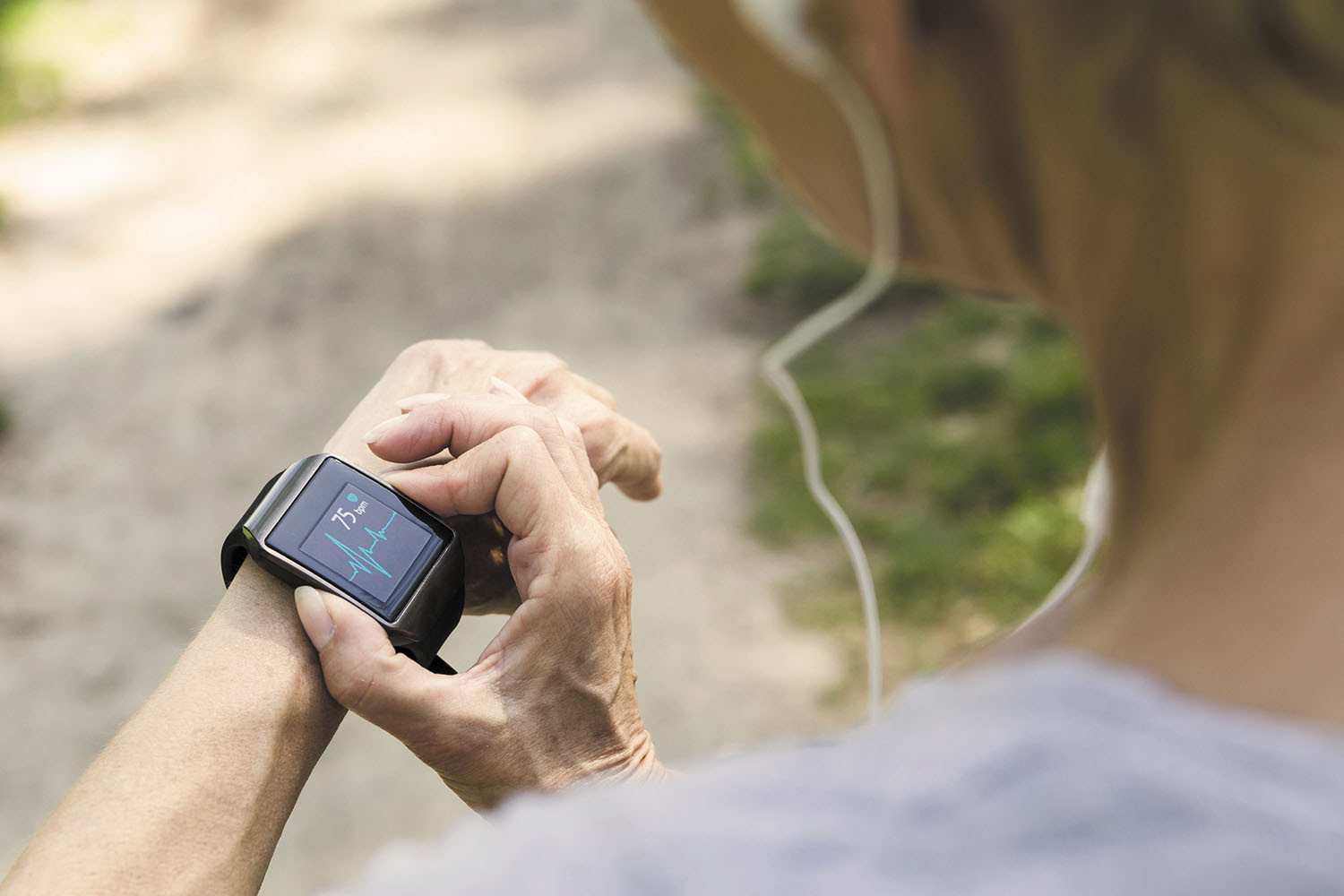
5 timeless habits for better health

What are the symptoms of prostate cancer?

Is your breakfast cereal healthy?

When pain signals an emergency: Symptoms you should never ignore

Does exercise give you energy?

Acupuncture for pain relief: How it works and what to expect

How to avoid jet lag: Tips for staying alert when you travel

Biofeedback therapy: How it works and how it can help relieve pain

Best vitamins and minerals for energy

Should you take probiotics with antibiotics?
Heart Health Archive
Articles
Meal delivery plans: Should you give one a try?
These trendy programs may encourage healthier eating and even weight loss. But consider the cost and sustainability.
For people who don't have the time, energy, or interest to plan and prepare their own meals, a subscription meal delivery service may be an appealing option. A growing number of companies will deliver partly (or even fully) prepped meals right to your door. Many cater to a variety of dietary preferences, including vegetarian and gluten-free. Some are geared toward people seeking to lose weight or who have diabetes, and at least one provides low-sodium meals.
If you're concerned about preventing or treating heart disease, what should you consider before trying one of these plans? That depends on your particular situation, says Kathy McManus, director of the Department of Nutrition at Harvard-affiliated Brigham and Women's Hospital.
Heart rhythm monitoring with a smartwatch
These wrist-worn devices are better than ever at gathering data. But it's still too early to use them to screen for atrial fibrillation.
The original wristband monitors were pretty basic: they tracked your movement and tallied your daily steps. But before long, these digital devices could also estimate your heart rate, thanks to a sensor that measures changes in blood flow through your skin. Now, there are smartwatches with special sensors that can record a tracing of your heart's electrical signature (electrocardiogram or ECG) and alert you if it detects an irregular rhythm.
Last fall, the FDA granted Apple approval for the ECG sensor and an app that includes an algorithm to detect atrial fibrillation, or afib, the most common heart rhythm disorder (see "What is atrial fibrillation?"). While the Apple Watch Series 4 is the first of its kind to offer this feature, other companies have similar technologies in the works.
How yoga may enhance heart health
In addition to boosting fitness and easing stress, yoga may also help you embrace a healthier lifestyle.
Many people think of yoga mainly as an activity that promotes flexibility and balance. But this ancient tradition also includes breathing exercises, relaxation, and meditation. Together, these practices can lead to measurable improvements in factors connected with cardiovascular health, such as lower blood pressure, better sleep, and less artery-damaging inflammation.
"There are four distinct but interconnected areas in which yoga has specific benefits, not just for heart disease but any disease," says yoga researcher and neuroscientist Dr. Sat Bir Singh Khalsa, assistant professor of medicine at Harvard Medical School. Following are summaries of the four areas.
Deep-vein blood clots: What you need to know
Learn how to recognize and prevent this dangerous condition, known as venous thromboembolism, or VTE.
When a blood clot blocks an artery supplying the heart or the brain, the result is a heart attack or stroke. Most Americans are familiar with these two serious health threats. But they're probably less familiar with the dangers of venous thromboembolism, or VTE — a clot that forms in a vein.
A clot in the leg or arm, known as deep-vein thrombosis, can cause pain, swelling, and redness in the affected limb. But the real threat occurs if the clot breaks off and travels to the lungs, causing a pulmonary embolism.
Legume of the month: Red beans
Unlike most bean varieties, which come in earthy, neutral hues, red beans can add a bit of color to your cooking. Like all beans, they're a good source of potassium, a mineral that promotes healthy blood pressure.
Red beans are used throughout the world in a variety of dishes. Red beans and rice is a common meal in the southeastern United States. This Creole-inspired dish features red beans simmered with bell peppers, onions, celery, and spices served over rice. Similar versions are found in Latin American cuisine. In Northern India, rajma chawal is made with red kidney beans, onion, tomato and a blend of spices, including ginger, garlic, coriander, cardamom, and cumin. Chili recipes often include red kidney beans, and they are a key ingredient in three-bean salad, along with garbanzo beans and fresh green beans.
Sleep shortfall linked to higher risk of clogged arteries
Research we're watching
Too little sleep may be hard on your blood vessels, according to a study in the January issue of the Journal of the American College of Cardiology.
For the study, 3,974 healthy, middle-aged people wore watchlike devices called actigraphs for a week to track how long they slept and how often they woke up and moved during the night. The participants also received three-dimensional ultrasounds of arteries in their necks and upper legs and special scans to check their heart arteries.
Moderate drinking may raise the risk of atrial fibrillation
Research we're watching
Both heavy drinking and binge drinking (consuming large amounts of alcohol in a single session) are known to increase a person's risk of atrial fibrillation (afib). But even moderate drinking may leave people more prone to the rapid, irregular heart rhythm, a new study suggests.
The report, published online January 9 by the journal Heart Rhythm, included 75 people with afib. Twenty-five were lifelong nondrinkers, 25 were light drinkers (two to seven drinks per week) and 25 were moderate drinkers (eight to 21 drinks weekly). Each participant underwent special tests that generated a three-dimensional map showing electrical and structural changes in their left atria, the heart's upper-left chamber. These changes reflect the severity of afib.
Walk your way to more flexible arteries?
Research we're watching
The more steps you take per day, the more flexible your arteries may be, a new study suggests. Elastic, flexible arteries are a sign of a healthy cardiovascular system, while stiff, inflexible arteries are a harbinger of heart disease.
Researchers pooled findings from 10 studies that measured people's daily step counts and their arterial stiffness, using a technique called pulse wave velocity. With every heartbeat, a wave of blood travels through the body's network of arteries. Measuring the speed of the pulse wave provides information about how stiff or how flexible the arteries are. The stiffer the arteries, the faster this wave travels.
The combo of Mediterranean diet and statins can protect against a fatal second heart attack
In the journals
People who have had a heart attack or a stroke are routinely prescribed a statin to reduce the risk of a repeat event. But by also following a Mediterranean-style diet, they can improve their chance of living longer, suggests a study in the Feb. 1, 2019, issue of the International Journal of Cardiology.
The study looked at 1,180 people, average age 68, who had at least one previous heart attack or stroke, and recorded their statin use and diet intake at the study's beginning. The researchers identified the people who faithfully followed a Mediterranean-style diet. A Mediterranean-style diet involves consuming medium to high amounts of whole fruits and vegetables, whole grains, legumes and nuts, olive oil, and poultry and fish, with limited amounts of red meat, alcohol, and dairy.
High-fiber diet protects against cardiovascular problems
Research we're watching
Want to reduce your risk of cardiovascular disease, diabetes, and colorectal cancer? Eat more fiber, says a meta-analysis published online January 10 by The Lancet.
Authors reviewed data from 185 prospective studies and 58 clinical trials and found that people who ate the most fiber had a 15% to 30% lower risk of dying from cardiovascular disease or developing diabetes or colon cancer, compared with people in the study who ate the least. People appeared to get the biggest benefit when they ate between 25g and 29 g of fiber a day.

5 timeless habits for better health

What are the symptoms of prostate cancer?

Is your breakfast cereal healthy?

When pain signals an emergency: Symptoms you should never ignore

Does exercise give you energy?

Acupuncture for pain relief: How it works and what to expect

How to avoid jet lag: Tips for staying alert when you travel

Biofeedback therapy: How it works and how it can help relieve pain

Best vitamins and minerals for energy

Should you take probiotics with antibiotics?
Free Healthbeat Signup
Get the latest in health news delivered to your inbox!
Sign Up











